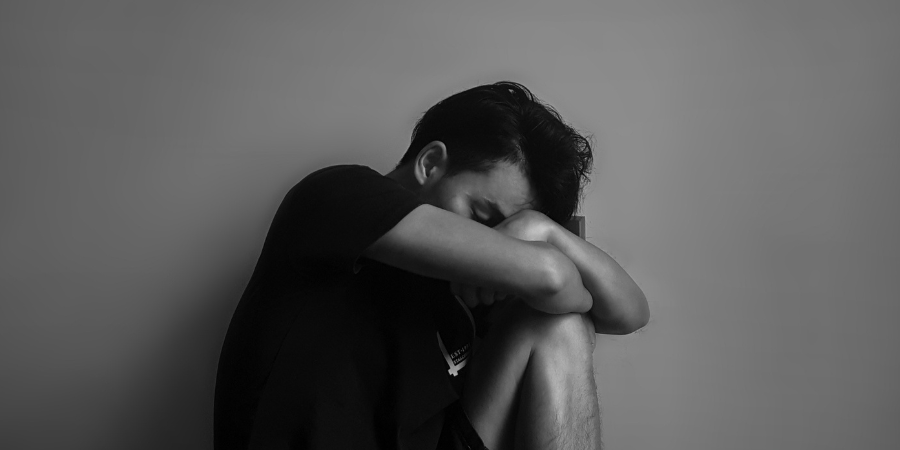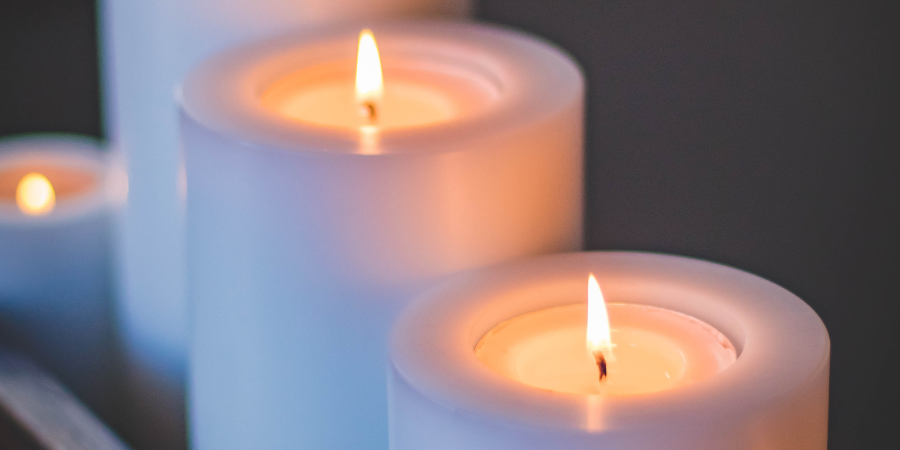
Written by:

Medically Reviewed by:
Last Updated:
October 13th, 2025
Ecstasy (MDMA) rehab
Ecstasy, also known as MDMA, is often seen as a ‘party drug’, but the reality is far more serious. While it may not carry the same reputation as other substances, ecstasy use can still lead to life-changing and even life-threatening consequences.
At UKAT, we recognise that behind every struggle is a future worth protecting. That’s why we provide ecstasy rehab through all our centres within our network. We know that entering MDMA rehab can be scary, but with your help, you will have everything you need to start living again.
What is ecstasy rehab?
Ecstasy rehab gives you a chance to stop and breathe after what can feel like a never-ending loop of late nights, crippling comedowns, and chasing the next high. Rehab pulls you out of that cycle long enough to look honestly at what MDMA has been doing to your body, brain, and personal life.
MDMA addiction treatment begins with clearing the drug from your body through a medically-assisted ecstasy detox. Once you are ready, you will then begin your ecstasy rehab programme. This will include sessions to discuss what’s been going on in your life, why you have become reliant on ecstasy, and what life could look like without it.
With UKAT, you’ll stay in one of our centres where staff are there day and night. There’s structure, safety, and people around you who want to see you succeed. For once, you will have the time to focus only on yourself, making small but meaningful steps each day towards a new life.
Who is ecstasy rehab beneficial for?
Ecstasy rehab can benefit people at every stage of addiction or recovery. Some people begin ecstasy rehab after years of use, when the drug and the lifestyle around it have already started to take a toll. Others begin much sooner, after realising they can’t control when or how much they take. Many of our clients are even encouraged to come by family or friends who can see the harm more clearly from the outside.
Ecstasy rehab is also very important for people who are taking more than one drug at a time. This is really common among ecstasy users who may be mixing it with other stimulants, a lot of alcohol, or relying on sedatives to help with the ecstasy comedown. The problem is that this mixture of substances makes both overdose and addiction far more likely.
If you’re not sure whether ecstasy rehab is right for you, or even if what you’re facing counts as addiction, reach out to UKAT today for friendly, professional advice.
Why is MDMA addiction treatment important?
There can be serious and even life-threatening consequences for letting MDMA addiction go untreated. Physically, heavy MDMA use can overheat your body, strain your heart, and damage your liver and kidneys. It can also affect your memory, sleep, and mood, leaving many people feeling depleted and anxious long after the drug has worn off.
Mentally, the comedowns can spiral into depression, paranoia, or severe anxiety, and for some people, these issues don’t fade when the immediate effects of ecstasy do. Daily life can soon become all about recovering from the last pill or planning the next one, and families and friendships often fracture under the strain.
The scary reality is that ecstasy carries risks every single time you take it. Clinical evidence suggests that around 1 in 900 pills results in a severe, non-fatal health incident, and the estimated risk of a fatal incident in the UK is 0.01–0.06% per user.
While that may sound low, the scale of ecstasy use shows why this is a big problem. The Office for National Statistics found that in the year ending March 2024, 1.2% of adults aged 16–59 and 2.2% of those aged 16–24 used ecstasy in the previous year. With so many people using MDMA, the number of potential deaths and serious medical emergencies is frightening.
Treatment at a private ecstasy rehab allows you to address and avoid all these risks. UKAT’s teams can help tackle both the physical strain and the mental toll of ecstasy, while giving you ongoing guidance to stay on track.
Do I need ecstasy rehab?
It is not always easy to see when ecstasy use has crossed a line, especially if all your friends are taking it or it’s become such an important part of your social life. Here are a few quick questions that can help you recognise if you need ecstasy rehab:
- Do you end up taking more pills than you planned whenever you go out?
- Are your comedowns lasting longer and leaving you anxious or depressed?
- Have you missed work, studies, or commitments because of using ecstasy or recovering?
- Do you feel uneasy or irritable when you try to cut back on ecstasy?
- Are you using all your money buying ecstasy?
- Have friends or family said they’re worried about your ecstasy use?
- Has ecstasy stopped being fun and started to feel like something you have to do?
If these questions sound familiar, it could be time to think about getting professional support at a UKAT ecstasy rehab centre.
Private ecstasy rehab vs. NHS ecstasy rehab
For people struggling with ecstasy, waiting months for support can make everything worse. NHS services do exist, but the majority of treatment is delivered as outpatient care. That means you will still be at home, trying to recover while surrounded by the same friends, parties, or pressures. Weekly therapy sessions alone can feel too light when comedowns and cravings hit hard, and long delays before treatment starts can leave many people stuck in the same cycle.
In inpatient ecstasy rehab at a UKAT centre, you step into a completely different environment. Living at the centre full-time removes access to drugs and gives you space away from the nightlife and triggers that keep pulling you back. Staff are on hand day and night to guide you through the early stages, when cravings and withdrawal symptoms can be at their worst.
Your time is carefully organised from morning until night. Therapy, support groups, and healthy meals give structure to each day in rehab, helping you rebuild a stable routine while your body and mind recover. Crucially, instead of pushing through alone, you are supported by people who know exactly how tough those first weeks can be.
This level of care isn’t available in most outpatient settings, but inpatient ecstasy rehab gives you safety, immediate help, and constant support.
Therapies involved in ecstasy addiction treatment
Therapy is truly at the heart of effective ecstasy rehab treatment. The physical cravings and comedowns pass in time, but therapy is what helps you understand the roots of your ecstasy use and how to build a different future. It is a space where you can speak freely about the pressure to use, the damage it has caused, and the feelings you may have been hiding.
At UKAT, you will have individual counselling to look closely at your own challenges and group sessions to connect with others who understand what you’re going through. Structured approaches like CBT or DBT are also offered to help you change the way you respond to triggers, and trauma-focused work can support you if past experiences are still weighing heavily on your present.
We also know how much ecstasy use can strain families. That is why family therapy is included, giving everyone the chance to speak openly and start repairing relationships. Alongside this, holistic options such as mindfulness, fitness, or creative workshops give you healthier ways to lift your mood and manage stress.
Each UKAT centre offers its own combination of therapies. If you would like to learn more, our team can explain the options and help you choose the setting that feels right for you.
Ecstasy relapse prevention and aftercare
Finishing rehab is a big achievement, but staying drug-free outside can be just as challenging. Studies suggest that 40–60% of people in recovery relapse, and with ecstasy, this often happens during nights out, emotional dips, or when you are surrounded by old social circles. Without planning, it is easy to slip back into these old and dangerous habits.
That is why UKAT implements a comprehensive treatment pathway dedicated to maintaining long-term recovery through aspects such as our secondary care and sober living that you can opt for after your primary treatment care. We place relapse prevention at the centre of treatment for ecstasy addiction. In rehab, you will work with therapists to map out your personal risk points, whether that’s the lure of nightlife or feelings of anxiety, depression, or emptiness that ecstasy has been masking. Practising strategies for these situations in rehab means you will be better equipped to face them in real life.
When you leave, our ongoing support helps keep you steady. Every UKAT client has access to aftercare and a place in our Alumni network. Staying connected to others who have lived through the same temptations can make the difference when recovery feels particularly tough.
What are the benefits of UKAT’s ecstasy rehab programmes?
UKAT’s ecstasy rehab programmes can have powerful benefits for both your health and your future. Physically, the difference can be dramatic as once ecstasy is out of your system, your body starts to rest properly, and your concentration, memory, and mood begin to lift.
On the emotional side, rehab provides a break from the constant ups and downs that regular ecstasy use brings. With therapy and support, you learn healthier coping mechanisms for any stress or issues in your life and build the confidence to face those challenges without drugs.
A huge benefit also comes from the change in environment. Inpatient ecstasy rehab separates you from the parties, people, and places where drug use is normalised. Instead, you are surrounded by positive support and routines that give you the best chance of staying drug-free.
Families often notice these changes most, and this is one of the most incredible benefits. Instead of living with worry, they see you improving day by day, and through family sessions, you can rebuild bonds that may have been damaged.
Just as importantly, rehab keeps you clear of legal risks. Ecstasy is classified as a Class A drug, and both possession and supply can have life-changing legal consequences. Rehab helps you take a path where your future freedom is no longer at risk.
How to find MDMA addiction treatment near me?
Ecstasy may seem harmless, but it kills and hospitalises people every year. At UKAT, our rehab centres provide urgent treatment with a full programme of drug detox, therapy, and aftercare to protect your health and future. Call us today, because the next pill could be the one that ends it all.
Frequently asked questions
(Click here to see works cited)
- Drug Poisoning Deaths Involving Ecstasy in England and Wales from 1993 to 2022.” Statista, 2023, https://www.statista.com/statistics/470824/drug-poisoning-deaths-mdma-ecstasy-in-england-and-wales/
- UK Government. Young People’s Substance Misuse Treatment Statistics 2022 to 2023 Report. GOV.UK, 2023, https://www.gov.uk/government/statistics/substance-misuse-treatment-for-young-people-2022-to-2023/young-peoples-substance-misuse-treatment-statistics-2022-to-2023-report
- Office for National Statistics. Drug Misuse in England and Wales: Year Ending March 2024. ONS, 2024, https://www.ons.gov.uk/peoplepopulationandcommunity/crimeandjustice/articles/drugmisuseinenglandandwales/yearendingmarch2024
- Schifano, Fabrizio, et al. “Ecstasy (MDMA): Neuropsychological, Neuropsychiatric, and Psychobiological Issues.” Neuropsychobiology, vol. 77, no. 3, 2018, pp. 125–138. PubMed, https://pubmed.ncbi.nlm.nih.gov/31909673/





